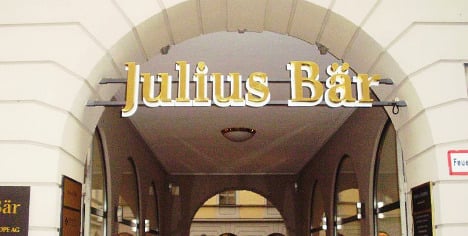US tax authorities had requested administrative assistance from their Swiss counterparts to investigate a number of US citizens suspected of having undeclared funds at the Zurich-based bank, the Neue Zürcher Zeitung (NZZ) reported.
"We confirm the receipt of a request for information from the Federal Tax Administration in Switzerland based on the effective double taxation agreement between Switzerland and the US," a bank spokeswoman told AFP in an email.
"We are currently working on the request from the Swiss authority," she added, declining to say how many of its clients had been targeted.
NZZ however reported that the request concerned some 100 clients and covered their activity from 2002 to 2012.
The request is the third from US tax authorities to a Swiss bank, after UBS and Credit Suisse recently received similar requests, the paper said.
Washington has repeatedly accused Swiss banks of complicity in tax evasion since they hold billions of dollars belonging to American citizens, who have taken advantage of Switzerland's long-cherished bank secrecy laws to avoid declaring their holdings to US tax authorities.
The United States has launched investigations into the dealings of around a dozen Swiss banks, including Julius Bär, prompting Switzerland to try to reach an overarching settlement with Washington to provide legal closure for its financial sector.
Swiss Finance Minister Eveline Widmer-Schlumpf told Swiss public radio earlier this month that a deal with the Americans was in sight, but did not provide any details.
The NZZ, however, reported that sources familiar with the talks recommended Swiss banks that have managed US citizens' undeclared funds to brace for massive fines.
The head of Credit Suisse, Switzerland's second largest bank, meanwhile told NZZ that he hoped for a rapid solution to the stand-off, even if it was a painful one.
"A painful solution is better than no solution," Urs Rohner told the paper, insisting that the deal should cover all the banks.
"It is unrealistic to think that the banks can continue skirting the problem in the long term, and that it will just solve itself," he added.
Switzerland has come under increasing pressure to end its bank secrecy practices, as crisis-struck countries press the Alpine nation to reveal details of their citizens who place their assets in the country.
TAX EVASION
Julius Bär clients targeted in US tax probe
American clients of private bank Julius Bär were told recently that they are the focus of a US tax evasion probe, a Zurich-based daily reported on Tuesday.
Published: 28 May 2013 18:10 CEST

Photo: Sporst
Url copied to clipboard!


 Please whitelist us to continue reading.
Please whitelist us to continue reading.
Member comments